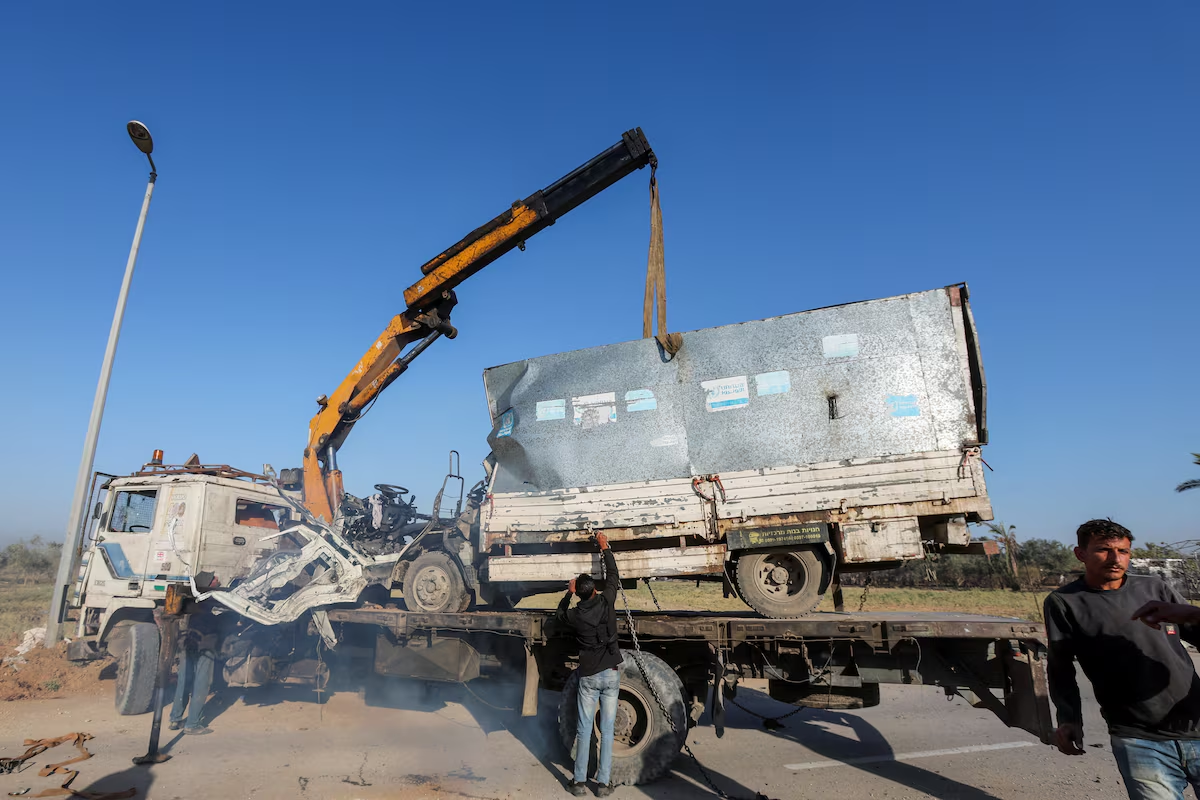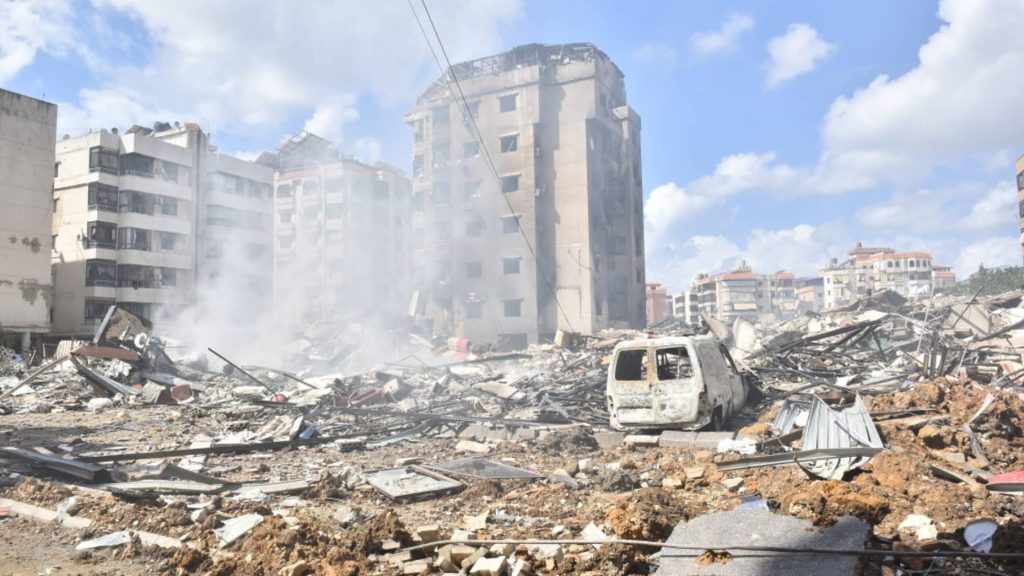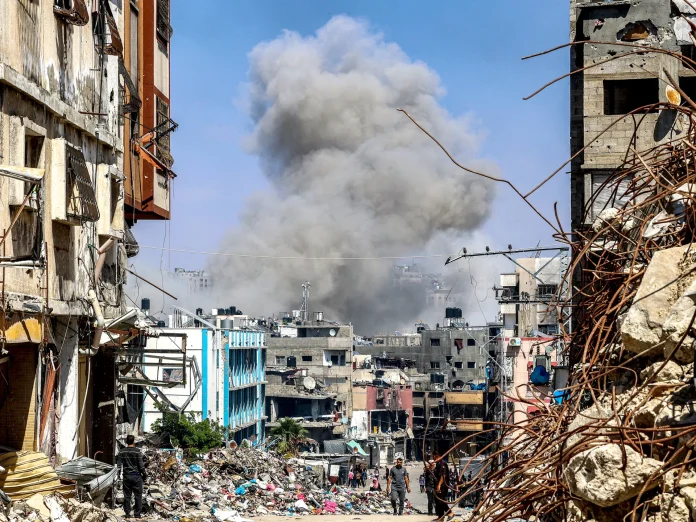On Wednesday, Israeli airstrikes in Gaza killed 16 people as Israel escalated its military campaign in northern Gaza, targeting hospitals and refugee shelters while urging residents to evacuate to the south. The bombardment hindered medical services and disrupted a planned polio vaccination campaign for children in the area, according to the Gaza Health Ministry and the World Health Organization (WHO). The intensified operation, launched three weeks ago to prevent Hamas from regrouping, escalated further after the killing of Hamas leader Yehya Al-Sinwar last week.
Israel’s military last Friday announced that another army unit had been deployed to Jabalia, where Israeli forces began besieging refugee shelters, forcing displaced people to leave while detaining many men. At least 650 people have been killed since this latest offensive began, according to Gaza’s health ministry. Among the latest casualties were two Palestinians killed in Beit Lahiya and 12 others in Gaza City, including four municipal workers, all victims of airstrikes on Wednesday. Two more Palestinians were killed in Deir Al-Balah in central Gaza.

In the northern Gaza Strip, health and civil emergency officials reported that bodies of Palestinians killed in and around Jabalia were left scattered on the roads and under debris, inaccessible to medical teams due to ongoing Israeli fire. Hospitals, schools, and shelters housing displaced families have come under siege from Israeli forces, which have ordered residents to evacuate and move southward. Health officials indicated that hospitals in the north have either ceased operations or are functioning with minimal resources due to the depletion of supplies and the ongoing conflict.
Medical teams, facing dwindling resources, have been unable to meet demand, and hospitals are running out of essential supplies like blood units, coffins, and shrouds for preparing the deceased. In response to the dire situation, Gaza’s health ministry issued an urgent plea, requesting the international community to help provide even basic items like shrouds. The ministry also confirmed that the ongoing conflict had postponed a planned vaccination campaign targeting 120,000 children in northern Gaza, as health workers are unable to access those areas safely.
On Tuesday, the U.N. agency for Palestinian refugees called for a temporary ceasefire to allow civilians to evacuate from northern Gaza, as hospitals struggle with a lack of medical supplies. Despite calls for humanitarian aid, Washington has urged Israel to permit more supplies into northern Gaza, though local medics say the aid has not yet reached them. According to Israel’s military humanitarian unit, COGAT, 237 trucks carrying essential aid, such as food, water, and medical supplies, have been delivered to northern Gaza in the past week, but the health ministry and residents claim no aid has reached critical areas like Jabalia, Beit Hanoun, and Beit Lahiya.

The Israeli military stated that its operations in northern Gaza are focused on targeting Hamas militants, whom they accuse of launching attacks from these areas. Israel claims to have killed numerous militants and destroyed military infrastructure while assisting civilians who complied with evacuation orders. While there has been no large-scale ground offensive, Hamas and Islamic Jihad forces have engaged Israeli troops with anti-tank rockets and mortar fire in the north.
The overall death toll in Gaza has surged, with the Gaza Health Ministry reporting close to 43,000 fatalities, and most of the 2.3 million residents displaced. Israel’s offensive was launched in response to the Hamas-led attack on Israel on October 7, 2023, during which 1,200 Israelis were killed and around 250 were taken as hostages into Gaza. The conflict has since escalated into one of the deadliest confrontations in the region, and efforts to mediate a ceasefire or allow humanitarian aid have so far made little progress as hostilities continue to rage in Gaza.




